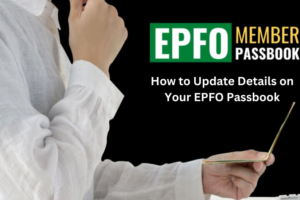The importance of phones in today’s digital marketing environment cannot be overstated. Recent studies have shown a remarkable increase in the use of mobile phones for business purposes, with the number of recorded calls increasing dramatically. Phones have emerged as powerful tools for converting referrals into revenue, with conversion rates far exceeding online averages. Companies gain valuable insights from phone calls, often revealing operating blind spots. Many have seen significant increases in phone conversion rates, highlighting the critical role that virtual call tracking software plays in optimising operations.
Given the critical role that phone calls play in sales, the benefits of call analytics for data-driven insights, improved customer experience, and increased call conversions are important to sales and marketing professionals this blog issue provides a comprehensive review of call research, including sales and marketing strategies, definitions; It has its contemporary applications in effort and basic applications.
Unlocking the Power of Call Analytics:
Exceptional sales leaders understand that the phone isn’t just a relationship-building tool; Provides valuable insights into customer needs, sales rep performance, and team development opportunities. By leveraging these insights, teams can exceed customer expectations before, during, and after the call.
Call analytics technology empowers teams throughout the sales process from marketing to sales by enhancing critical customer conversations. Robust post-call processing can provide teams with relevant insights into call participants, pre-call information, and future communication strategies. Understanding the importance and value of call analytics is important and for choosing the best solution one that goes beyond recording calls or simply providing static data. AI-enabled call analytics can collect and analyse long-term monitoring data for comprehensive analysis.
Typically, call analytics tracks a variety of data points, including post-call information such as the caller, phone number, and the marketing source that triggered the call (e.g. Facebook ads, Google ads, or email marketing campaigns).
Decoding Operations: The Inner Workings of Call Analytics
Call analytics provide data-driven insights to power sales processes and generate leads. It also enables performance to be measured according to industry standards and helps develop appropriate strategies. The process involves multiple steps and strategies to achieve the desired results, starting with a unique, trackable phone number for each sales channel and touchpoint.
These phone numbers have call tracking capabilities, allowing them to collect relevant call information, including caller information and relevant marketing information. The call-analytics solution then uses call recording tools to capture conversations and uses speech-text technology to record them. Artificial intelligence is integrated to analyse data for actionable insights, determining, for example, whether a caller qualifies as a sales executive and matches the right customer profile. Sales call analysis data can be visualised in reports, allowing salespeople and sales reps to easily monitor trends and performance. Having access to recorded calls and transcripts allows teams to review communications and make informed decisions based on human judgement.
Unlocking Value: The Benefits of Call Analytics
Here are some of the benefits that call analytics can bring to your organisation:
-
Enhancing Call Centre Agent Productivity: Call analytics technology can record call centre conversations, providing valuable insights into employee performance. This data helps managers provide targeted training to improve call handling skills and increase customer satisfaction.
-
Enhanced Analysis and Reporting: Call analysis tools provide real-time data on information activity and call flow, enabling more effective reporting and analysis. Features such as call tracking, scoring, and data visualisation help call centres resolve inquiries faster and optimise operating costs.
-
Improve Agent Productivity: Call recording helps managers identify areas for improvement to ensure compliance with call flow regulations, increasing agent productivity. Using the right analytics data allows agents to focus on the processes that produce important results.
-
Maximising Marketing Effectiveness: Call analytics software provides data-driven insights to identify effective marketing campaigns and areas for improvement. Call recording analytics help identify customer pain points, facilitating targeted marketing efforts that maximise ROI.
-
To Create Effective Sales Strategies: Sales teams use call analytics data to understand customer pain points and adjust sales strategies accordingly. Managers can use this information to educate sales reps in effective customer interactions, ensuring successful progress through the sales funnel.
-
Optimise Customer Personas: Call analytics for deeper insights into customer preferences, enabling sales reps to optimise communications and deliver these customised solutions this data-driven approach enhances customer satisfaction and it strengthens relationships.
Empowering Teams: Utilising Call Analytics for Reporting and Coaching
Call analytics reports typically present telephony data visually in charts, graphs, and other forms, giving organisations insight into aspects of their communication systems Customizable dashboards are tools for measuring, score, and analyse customer experiences, employee performance, and quality assurance. Advanced call analytics software like Enthu.AI powers conversational intelligence, enabling real-time visibility through these dashboards. This allows agents and managers to monitor and understand communication metrics, facilitating continuous improvement.
Call analytics training uses insights from data analytics to improve the performance of individuals, including customer service employees. This training method uses data-driven reporting to refine communication channels and improve customer interactions. For example, agents can access real-time performance dashboards, enabling instant flexibility and improved communication. Advanced dashboards allow managers to monitor the entire organisation, individual agents, or specific projects, implement targeted training to address areas for improvement, and deliver exceptional customer service.
Exploring Various Call Tracking Methods
Call analysis software uses a variety of techniques to track calls effectively. Here are some of the techniques:
-
Offline Call Tracking: Each offline marketing channel (e.g., magazine ads, billboards) is assigned a unique tracking number. When the user dials the tracking number, the call is routed to a specific destination, allowing businesses to track and record calls from any direction, providing insights into how marketing on the effectiveness of online marketing strategies
-
Marketing Source Call Tracking (DNI) with Dynamic Number Entry: Assigns a unique number to each marketing source (e.g., Facebook ads, Google ads). Each source tracks all calls, including detailed contact information and call recordings, allowing companies to accurately measure the effectiveness of individual marketing campaigns
-
Call Recording Operation: Automatically records all incoming and outgoing calls made by the call centre. This can be signed by an agent or simply set when a call is answered or placed, providing a complete record of customer interactions for quality control and training purposes
-
Event-Based Monitoring: Uses specific events or activities as triggers for call recording. For example, a recorded call can be made by filling out a contact form and entering a phone number. This helps companies track calls that are triggered by specific actions, providing valuable insights into customer behaviour and preferences.
These call tracking techniques enable businesses to better track and analyse call data, facilitating more informed marketing decisions and strategic planning.
Uncovering Actionable Insights
In today’s rapidly evolving business transaction environment, the ability to analyse time has become essential. Meaningful phone conversations yield valuable insights and a deeper understanding of customers. The use of Call analytics enables businesses to enhance customer experience, increase conversion rates, optimise agent performance, and drive overall profitability and growth. As companies around the world realise the transformative potential of this technology, there is an urgent need to embrace conversational analytics, especially in customer service and networking environments.










